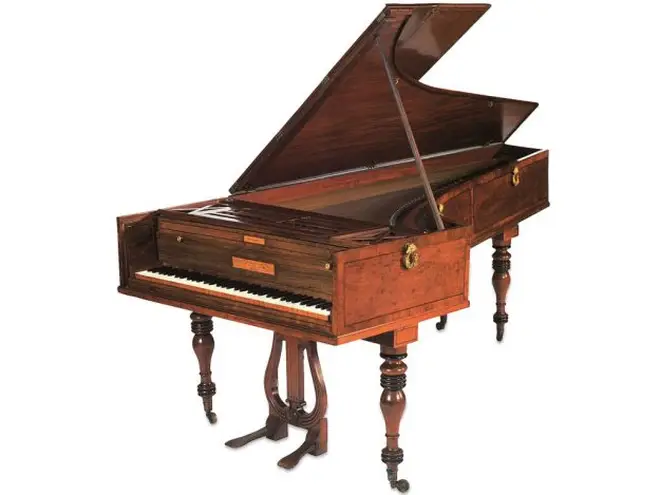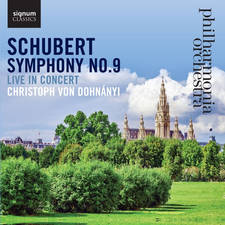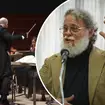Listen to Beethoven epic ‘Hammerklavier’ Sonata, played on the composer's own piano
18 September 2018, 15:21 | Updated: 23 August 2019, 16:50
This Broadwood piano is identical to the instrument the composer owned. And it was that piano that inspired the composer to write his most famous piece for solo piano, the ‘Hammerklavier’ Sonata.
In 1817, the head of British piano firm Broadwood visited the composer Beethoven at his home near Vienna.
Thomas Broadwood was heartbroken to find the composer in terrible health and so poor that couldn’t even afford his own piano – he relied on loans by local piano makers.
The ill health he couldn’t do much about – but he could solve the piano problem. So he ordered a Broadwood piano to be shipped over to the composer. It finally arrived in May 1818.
Now, exactly 200 years later, the company – which still exists and is the world’s oldest piano firm – is marking the occasion with a series of performances on a piano identical to Beethoven’s Broadwood.
The chairman of Broadwood, Dr Alastair Laurence, said:
"Thomas Broadwood was trying to help Beethoven cope with his deafness. And the English piano is considerably louder in volume when compared with the Viennese equivalents. So I think that was Thomas’ thinking, to give him a piano that could help him.
"It certainly inspired him to a fresh burst of creativity. We know that the piano arrived half way through the composing of the 'Hammerklavier' Sonata so that the last movement was actually written on a Broadwood.
"The next Sonata, the one in E, I think that was part of Beethoven’s excitement at having a brand new piano, which is expressed in all these trills."
The original piano owned by the composer now lives in Hungary’s National Museum and is no longer in playing condition.
But you can hear performances on this piano from 1823 at Finchcocks on 27 May and at the Richard Burnett Heritage Collection in Tunbridge Wells on 10 June.
What makes Beethoven’s piano different?
The most obvious difference is the pedals – the sustain pedal is split. The idea is that you could sustain notes in the bass while playing a clear melody in the treble (high end of the keyboard). Or vice versa.
Here's a picture of the piano Beethoven received from Broadwood.

Here’s a demonstration
The chairman of Broadwood, Dr Alastair Laurence showed us how the different pedal system works.
The piano strings are also different – giving the piano a very distinct sound. And it’s that sound that inspired Beethoven to write his epic 'Hammerklavier' Sonata.
Beethoven’s Hammerklavier Sonata
Beethoven wrote this piece on his Broadwood piano. And here’s a performance by Andreas Haefliger.
This instrument is currently on loan from the Richard Burnett Heritage Collection at the Royal Academy of Music Museum.


























